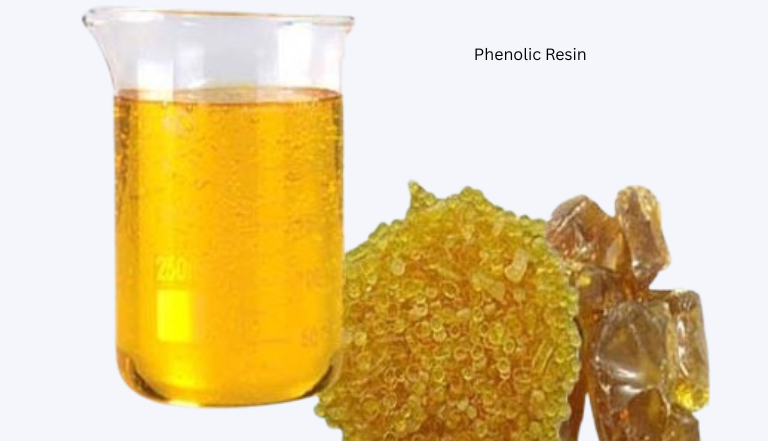
Phenolic resins, particularly phenol-formaldehyde resins, have long been used in industries such as automotive, construction and coatings due to their superior adhesion, thermal stability and chemical resistance. In both South Africa and Egypt, phenolic resins are increasingly recognized for their importance in manufacturing processes and they play a vital role in sectors like adhesives, laminates and molding compounds.
This article examines the market dynamics and supply chains of phenolic resins in South Africa and Egypt, focusing on domestic production, imports from India and the challenges and opportunities in both countries. It also explores the impact of Indian manufacturers and suppliers on the development of these markets, highlighting how the evolving landscape of these countries is driving the demand for phenolic resin adhesive and other related products.

The Phenolic Resin Market in South Africa: Demand and Key Industries
South Africa’s market for phenolic resins is characterized by a combination of domestic production and significant imports. The demand for these resins has been driven by industries like automotive manufacturing, construction and coatings, where phenolic laminates are widely used.
Domestic Production in South Africa
South Africa produces a range of phenolic resin materials, though it largely relies on imports to meet the full demand for specialty products. Domestic manufacturers produce phenolic molding compounds and phenolic laminates, which are essential for industries like electrical and automotive applications. However, the production capacity for some high-performance phenolic resins, especially those used in advanced applications like adhesives and coatings, is limited. This has created a market where local industries heavily rely on external suppliers to meet the demand for phenolic resin adhesive and high-grade phenol-formaldehyde adhesive.
Imports from India and Other Regions

India plays a critical role in the supply chain of phenolic resins for South Africa. The Indian manufacturing sector has well-established production facilities for phenol-formaldehyde resins and related products. India’s ability to produce large quantities at competitive prices makes it a major exporter to South Africa. The ease of transport via sea routes and the relatively low cost of production in India help mitigate the impact of logistics costs.
For South Africa, imports from India are crucial in filling the supply gap for phenolic resins used in the production of high-end products like coatings and adhesives. The growing demand for these products in South Africa’s automotive, construction and manufacturing industries relies heavily on the steady supply of these imported resins.
Downstream Industries and Opportunities
The growth of downstream industries in South Africa, particularly in automotive manufacturing and construction, provides opportunities for increasing demand of products. South Africa’s automotive sector, in particular, relies on phenolic resins for bonding and coating applications, including in parts that require heat resistance, durability and chemical stability.
The country’s construction industry also requires large volumes epoxy phenolic resins for coatings and adhesives in flooring, wall panels and other structural applications. The rise in infrastructure projects, combined with increased automotive production, positions phenolic resins as essential components in the country’s industrial growth.
However, challenges remain in terms of meeting demand with local production and the country must continue to depend on phenolic resin suppliers from countries like India to fill gaps in the market.
The Phenolic Resin Market in Egypt: A Growing Demand and Key Challenges
In Egypt, the demand for phenolic resins has been steadily increasing, driven by the country’s expanding industrial base. As in South Africa, the primary demand comes from automotive, construction and manufacturing sectors, where the use of phenolic resin for coatings, adhesives and molded parts is becoming increasingly important.
Domestic Production in Egypt
Egypt produces phenolic resins for use in various applications, such as the automotive and electrical industries. However, like South Africa, Egypt struggles to produce sufficient quantities of high-quality phenolic resins domestically. While there are a few local manufacturers producing phenolic laminate and adhesives, the country relies heavily on imports for high-performance products, especially for specialized industrial applications.
Imports from India and Other Key Suppliers
Indian manufacturers, who can produce phenolic resin adhesives and other derivatives at competitive prices, have a strong presence in Egypt’s market. The demand for phenolic resins in Egypt’s automotive and construction sectors relies heavily on these imports, particularly for products like phenolic epoxy resins and phenolic laminate used in high-performance applications. The shipping routes between India and Egypt are well-established, making Indian suppliers the primary source for phenolic resin.
Opportunities in Egypt’s Expanding Industrial Sector
The Egyptian government’s push to modernize its industrial infrastructure provides significant opportunities for phenolic resin suppliers. Increased investments in petrochemical production, automotive manufacturing and construction create a growing demand for phenolic resins. The rise in demand for durable, high-quality adhesives and coatings in construction and automotive sectors offers lucrative opportunities for Tridev Resins, as a leading phenolic resin adhesive manufacturer.
Additionally, the country’s growing emphasis on infrastructure development means there is an increased need for phenolic laminates in large-scale construction projects, such as commercial buildings and public infrastructure. The demand in automotive manufacturing and the expansion of Egypt’s consumer goods industry further adds to the market potential.
However, Egypt faces challenges in terms of developing domestic manufacturing capabilities for high-performance phenolic resins. As the demand for specialty resins continues to rise, there remains a significant reliance on imports, particularly from India, to meet these needs.

Comparative Market Insights: South Africa vs. Egypt
Market Dynamics
Both South Africa and Egypt share similarities in their reliance on imported phenolic resins, particularly from India. Both countries face challenges in terms of limited domestic production capacity, especially for specialized products. However, each country has unique dynamics in terms of downstream industries and market demand.
- South Africa benefits from a well-established automotive manufacturing sector, where phenolic resins are in high demand for adhesives, coatings and molded parts.
- Egypt, on the other hand, is seeing increasing demand due to rapid growth in infrastructure development and a rising automotive industry, both of which require advanced resins for coatings, adhesives and molded components.
Supply Chain Considerations
Both countries rely heavily on imports from India for their phenolic resin needs. However, the supply chains in South Africa are well-established due to the country’s position as a key trade hub in Africa. In contrast, Egypt’s supply chain is more vulnerable due to its reliance on both European and Asian suppliers, with a growing emphasis on Indian products as a cost-effective solution.
Indian manufacturers are playing an integral role in providing both countries with the necessary materials to support their growing industries.
Conclusion:
Both South Africa and Egypt are experiencing significant growth in their demand for phenolic resins across key industries such as automotive, construction and manufacturing. However, challenges in domestic production capacity persist, leading to an increased reliance on imports, particularly from India, to meet demand.
For South Africa, the established automotive and construction sectors provide a steady market for phenolic resin adhesives, with growing opportunities in high-performance applications. Egypt, similarly, benefits from an expanding industrial base, particularly in infrastructure and automotive manufacturing, creating a steady demand for phenolic resins.
As the demand for high-quality phenolic resin materials continues to rise, the future of these markets in both South Africa and Egypt will largely depend on strengthening domestic production capabilities and maintaining strong relationships with global suppliers like India. The evolving landscape offers opportunities for further growth.
- Role of Rosin Modified Phenolic Resins in Brazil and Mexico’s Industries
- Phenolic Resin in South Africa and Egypt: A Comparative Market and Supply Chain Analysis
- Titanium Acetylacetonate in Asian Catalysis: Driving Innovations in Petrochemicals and Green Chemistry
- How Phenolic Resins are Driving Innovations in High-Gloss Finishes in Brazil?
- Why Reactive Polyamide Resins are Revolutionizing Epoxy Adhesives in the European Construction Sector?



